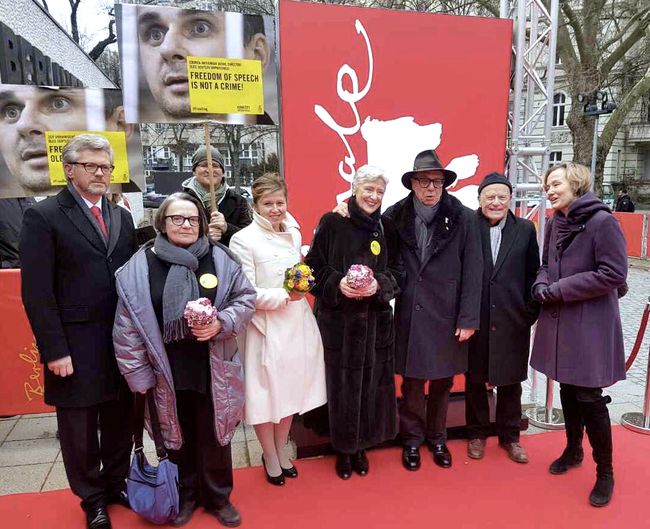Films, people, and animals
The film about Oleh Sentsov causes a great stir at Berlinale
Among other film forums the Berlin festival is distinguishing due to its powerful political aura. Very often the premieres here become not just cinema events, but also social events, and sometimes the quality of the film is not the most important thing.
The same thing happened to the documentary work by Russian Askold Kurov, The Trial: The State of Russia vs Oleg Sentsov (Estonia – Poland – the Czech Republic). Kurov was following the Sentsov trial from the very beginning and already presented the draft materials in Kyiv. The result is a 75-minute-long film shot in court, supplemented with the commentaries by lawyers, political scientists, and Sentsov’s relatives, as well as the news reports and footage, which is not directly connected with the trial.
The director had worked on vast material and as a result created a kind of a publicist program with low cinema value. It has neither an inner rhythm, nor a story, the choice of some commentators is poor. But the film has fulfilled its main task – it reminded the European audience about the crimes of Putin’s Russia, and the reviews published on the following day in special festival issues of the leading cinema magazines, Screen and Variety, prove this. The reviewers of both publications randomly recalled, in connection with The Trial Trump’s recent interview to the conservative TV channel Fox, where the incumbent US president was trying to whitewash Putin again. It is unknown whether it was intuition or a significant coincidence, which might take place in history, but Kurov’s film is today very topical in the background of the talks on possible lifting of the West’s sanctions against Russia.
As for cinema as art, the festival hasn’t seen any shakings as of yet. Suddenly relations between people and animals became one of the motives in the main competition: in Hungarian On Body and Soul (directed by Ildiko Enyedi) the main characters see themselves in their dreams as deer, in Polish Pokot (Spoor) by Agnieszka Holland a provincial teacher of English fights the hunters, and in Chilean drama A Fantastic Woman (directed by Sebastian Lelio) the dog is one of the reasons of the row. Unfortunately, the authors’ attitude to the audience is less sympathetic than to the animals, because all the abovementioned films have serious problems with actors’ performance, sense of humor, and credibility of the plots. However, Wild Mouse by Austrian comic Josef Hader is not about the mice, it’s about a neurotic, acrimonious music historian, who after his resignation breaks bad and starts to do more eccentric and risky things. Hader wrote the script and directed the film, organizing in a sense a benefit event for himself. The film could have been better, but for this is quite a quality work a debut.
So far film lovers pin their hopes on the film of one of today’s best European directors Finn Aki Kaurismaeki, The Other Side of Hope, a social tragicomedy which touches on the issue of forced immigration – another piercing topic of Berlinale.
Newspaper output №:
№11, (2017)Section
Culture





